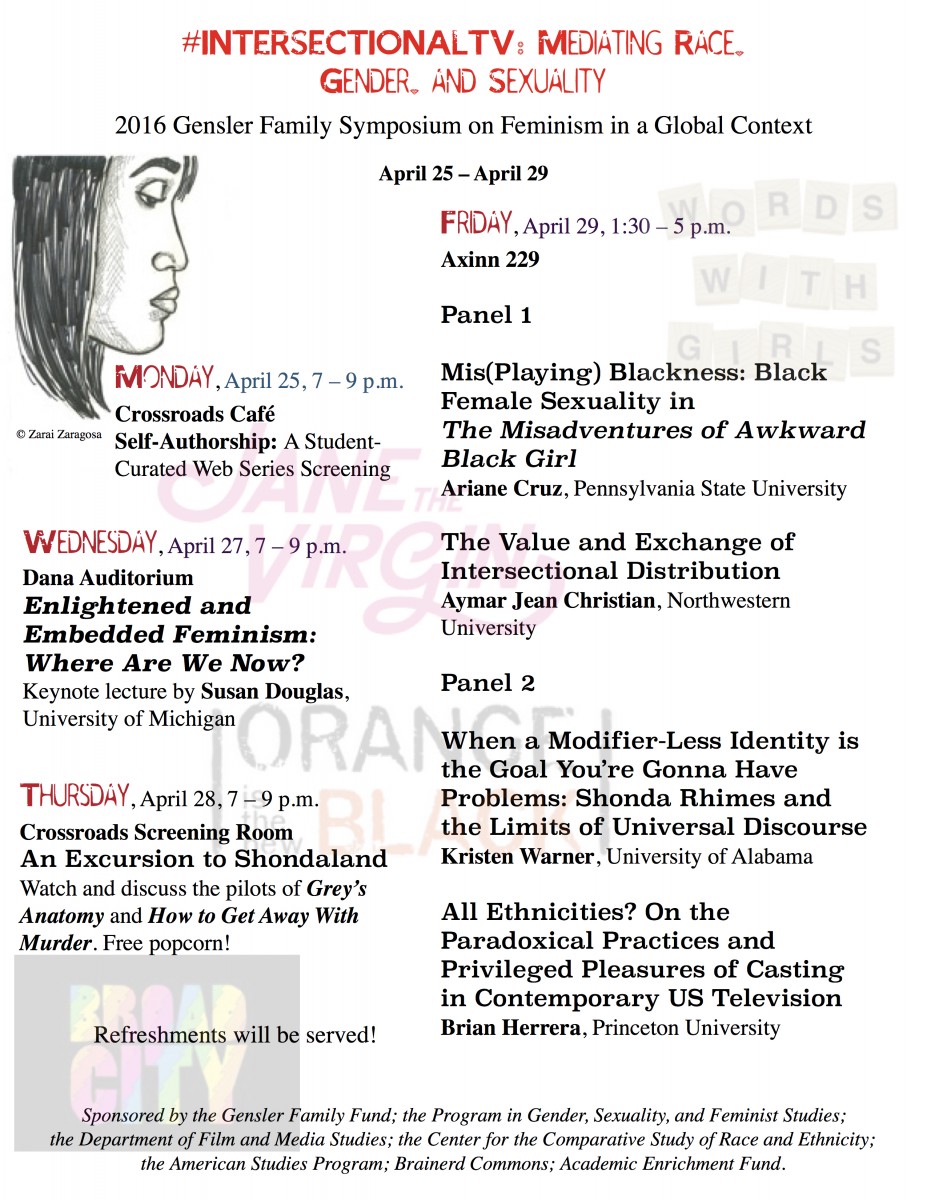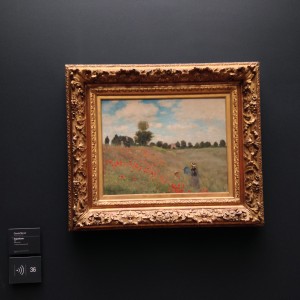Every spring, the Gender, Sexuality, and Feminist Studies department at Middlebury hosts a week-long symposium called the Gensler Family Symposium on Feminism in the Global Arena. The symposiums focus on the many challenges that women face in our ever-changing social, political, and economic environments. Some examples of broad topics from past years include: “Interrogating Citizenship: Sex, Race, Class, and Regimes of Power,” “The F Word: Feminist Texts, Feminist Lives,” and “Sexual Straightjackets & Queer Escapes.” How exciting do these sound? This past spring, I was given the opportunity to help plan the 2016 Gensler Symposium: “#IntersectionalTV: Mediating Race, Gender, and Sexuality.”
This academic symposium, during the spring of my junior year, was one of the most memorable and exciting academic experiences during my time at Middlebury. I am a Film and Media Culture Major, minoring in Gender Studies –– so the topic of the intersection of television and race, gender, and sexuality was almost too exciting for me to handle. The symposium consisted of a bunch of panels, screenings, discussions, and meals with other students, faculty members, and visiting professors from other institutions. Some of my favorite academic topics included the concept of casting, the importance of women and minority show runners in Hollywood, and the growing Queer TV movement, focusing on self-expression and performance art. Can you tell that I geeked out over this the entire week?
My favorite event of the week was a talk given by Susan Douglas, author of the book The Rise of Enlightened Sexism: How Pop Culture Took Us from Girl Power to Girls Gone Wild. Douglas presented in Dana Auditorium to an audience full of students across all disciplines, not just students of gender and film. Her lecture focused on everything from problematic contemporary television shows to Beyoncé’s self-proclaimed feminism. The best part of the day was when I joined Douglas and my four professors for dinner in town at Two Brothers Tavern. It was so special to share a meal with the author of a book that I have read in multiple classes and to discuss topics of feminism and pop culture with all of my professors outside of the classroom setting.
Middlebury is the kind of place where it’s cool to geek out over getting to meet an author. The 2016 Gensler Symposium was a week at Middlebury that I will never forget –– and I am looking forward to the upcoming one in 2017!
Here’s the poster from Gensler 2016:


